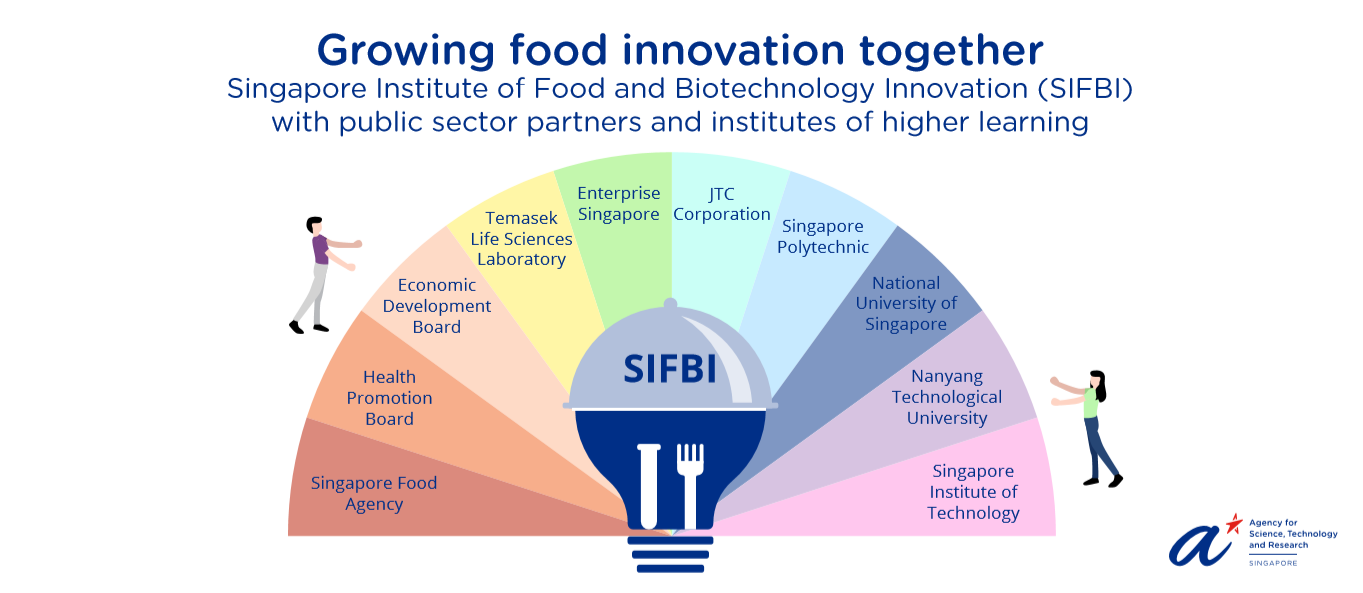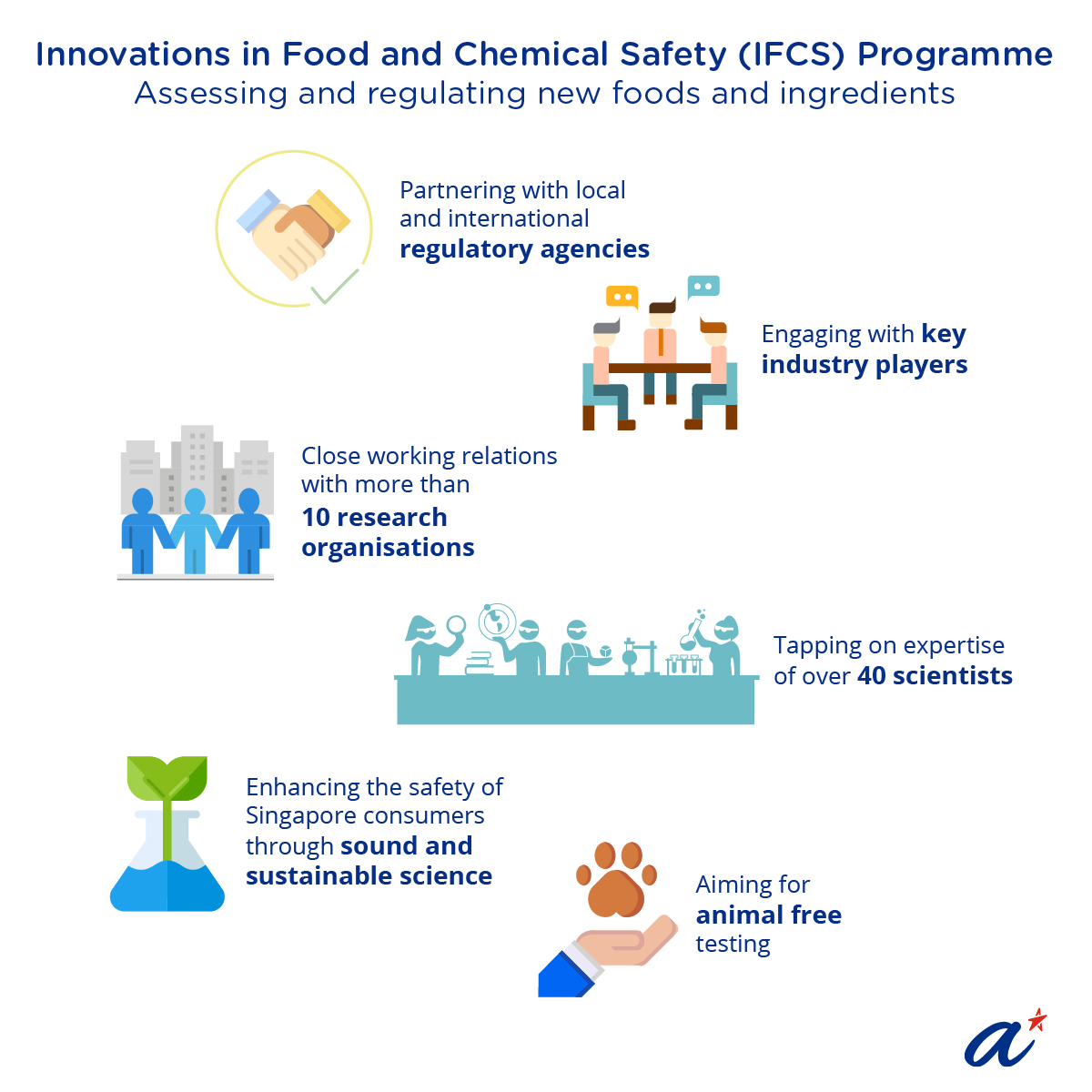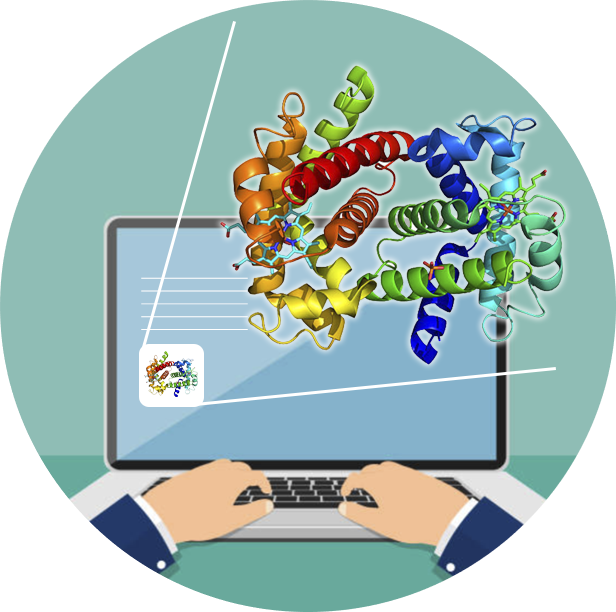A*STAR NEWS
The Right Pairings: Partnerships for Food Innovation
Singaporeans are known to have a deep love affair with their food, and are avid supporters of their local food. Now, the city state is also bent on ensuring that it has good R&D capabilities to serve the food industry to ensure that it can be self-sufficient for at least 30 per cent of its population’s nutritional needs locally by 2030.
To support this ambitious national goal dubbed the “30 by 30”, the local ecosystem is banding together to tackle fast-developing areas in food safety and nutrition. A*STAR’s Singapore Institute of Food and Biotechnology Innovation (SIFBI) is doing its part to actively promote partnerships in the public sector between academic and government scientists. The aim is to accelerate innovation and the transformation of the local food industry to capture new growth opportunities in the global food market.
Here are three fast-developing areas where A*STAR’s public sector collaborations are geared towards.
Safety of novel foods and ingredients
In the area of food safety, the A*STAR Innovations in Food and Chemical Safety (IFCS) Programme and SIFBI are working closely with local and international regulatory agencies to identify and address key gaps in the assessment and regulation of new foods and ingredients. IFCS is an R&D programme that draws capabilities from across A*STAR and works with the wider Singapore R&D ecosystem to improve test methods to support the introduction of new ingredients and products. A large part of IFCS’ work is on food safety, specifically food chemical or ingredient toxicology. Working with local and international regulatory partners, as well as industry, IFCS aims to develop fit-for-purpose, in vitro and computer-based tools to assess the effects of intentionally added and unintentionally present chemicals in our diet.
One example is IFCS’ work with the Singapore Food Agency’s (SFA) National Centre for Food Science in developing a human gut model for the testing of new ingredients and novel foods, to find out if they would cause genetic damage that may lead to cancer. This research is conducted across both A*STAR and SFA labs, and supported by NTU scientists.
Predicting food allergenicity
Proteins in food and consumer products must be studied for their potential to cause allergies before they are launched in the market. IFCS scientists from the Bioinformatics Institute (BII), in collaboration with Procter & Gamble (P&G), have improved in silico methods for allergen prediction, reducing the number of false hits. Their model, AllerCatPro, compares the 3D structure of epitopes alongside protein sequences to known allergens, thus improving the accuracy of prediction.

3D structure of epitopes and protein sequences
IFCS plans to deepen its research in allergy prevalence and potency prediction since this is a main goal in the assessment of alternative proteins. By getting regulatory bodies such as the Singapore Food Agency and companies in the food and nutrition sector on board, the team aims to promote AllerCatPro to improve the assessment framework of alternative proteins in line with Singapore’s national food safety goals. Other assays under development by IFCS include those focused on vitro digestion and gastrointestinal toxicity.
Developing healthier food products
A healthier diet can reduce the prevalence of chronic diseases in a local population. To this end, the Food Structure Engineering for Nutrition and Health Programme studies and designs structurally modified foods with improved nutritional benefits. A tripartite collaboration between SIFBI, NUS’ Department of Food Science and Technology as well as Singapore Polytechnic’s Food Innovation Resource Centre, its goal is to create healthier foods for the Singapore population. To date, the programme has developed low-calorie noodles, low-fat muffins, gluten-free bread as well as biscuits and noodles. Compared to the usual carbohydrate-laden products, these modified foods are absorbed and metabolised more slowly, enabling a slower rise in blood glucose, thus lowering the risk of diabetes in the long run. The programme has also developed fat-based gels that retard the increase in blood lipids for better cholesterol health.
In addition to these research partners, SIFBI’s other partners in food innovation include the Singapore Institute of Technology (SIT), Singapore Polytechnic’s Food Innovation Resource Centre and Health Promotion Board, as well as the Economic Development Board, Enterprise Singapore, JTC, and Temasek Life Sciences Laboratory.
Together, these partnerships are an essential ingredient in SIFBI’s goal to contribute towards Singapore’s food goals.
Stay tuned for the next installment of this Future of Food series. Next week, we showcase young scientists working on the latest innovations in food.
Was This Article Helpful ?
A*STAR celebrates International Women's Day

From groundbreaking discoveries to cutting-edge research, our researchers are empowering the next generation of female science, technology, engineering and mathematics (STEM) leaders.
Get inspired by our #WomeninSTEM
